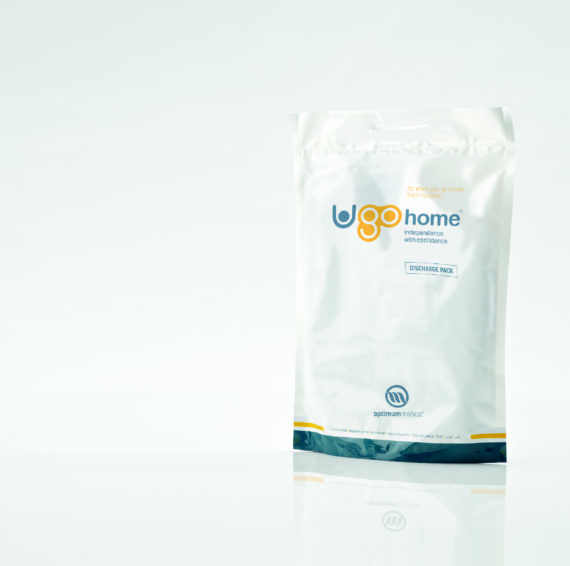Living with a catheter
If you’ve come across this article it may be because you’ve recently left hospital with a catheter or you’ve had a catheter inserted as part of the care you’re receiving. You may be thinking; How long should my catheter be left in? Will my catheter be permanent? How do I care for my catheter? There are many reasons why you may need a catheter. Some people only need to use a catheter for a short period, such as after surgery, whereas others may need it permanently if they’re unable to pass urine or have other health-related problems. Your doctor or continence nurse should explain to you why you need to have a catheter and how long you may need to have it for. If you’re unsure, always ask!
There are two types of urinary catheter – intermittent and indwelling catheters – you should be offered the best type of catheter for you and your lifestyle. An intermittent catheter is usually a single-use, disposable catheter that you insert yourself at regular intervals throughout the day or whenever you feel the need to urinate. According to NICE1, you should always be offered an intermittent catheter if it is suitable for you and you’re able to manage it properly, because the risk of infection is lower with this type of catheter.
More information on intermittent catheters.
An indwelling catheter differs from an intermittent catheter because it remains in place all the time. According to NICE1 you should only be offered an indwelling catheter as a last resort due to the risk of urinary tract infections (UTI’s) being much larger than when using an intermittent catheter. The indwelling catheter you are offered should depend on your needs and requirements, with your comfort and preferences being important factors.
Some other questions you might want to ask your doctor or nurse to ensure you’re properly taking care of your catheter may be:
– How do I clean or take care of the skin around the catheter?
– How much water should I be drinking every day?
– Can I shower/bathe/swim?
– Can I walk around or exercise with the catheter in place?
– What should I do if my urine looks unusual? E.g blood in the urine or cloudy urine. there is blood in my urine? If my urine is cloudy? If my urine has an odor?
– If I use a leg bag, how often do I need to change it? How do I empty it when I’m out in public?
– What drainage bag should I use at night time?
– What should I do if the catheter comes out?
– What should I do if the catheter stops draining? What if it leaks?
The healthcare professional you see regarding your catheter or continence will probably address these questions without you needing to ask them, but this is a handy checklist to refer too just in case.
Get your prescription healthcare appliances and medication delivered to your home totally free with Vyne Online (yes, really!)
 Another important question you should ask the healthcare professional overseeing your care is; What supplies do I need to get to care for my catheter? Where can I get them? There are several dispensing appliance contractors operating in the UK who you can receive delivery of your healthcare appliances through, including Vyne, the new eco-friendly home delivery service powered by Optimum Medical. Vyne is here to provide a better, greener, easier way of getting your healthcare appliances AND medication delivered direct to your door.
Another important question you should ask the healthcare professional overseeing your care is; What supplies do I need to get to care for my catheter? Where can I get them? There are several dispensing appliance contractors operating in the UK who you can receive delivery of your healthcare appliances through, including Vyne, the new eco-friendly home delivery service powered by Optimum Medical. Vyne is here to provide a better, greener, easier way of getting your healthcare appliances AND medication delivered direct to your door.
Our lovely Vyne Customer Care team have a wealth of knowledge and will always provide you with the best service possible. No matter whether you’re looking for support with a more complicated issue or just have a quick question – we’ve got your back! And if you require some specialist advice, our dedicated in-house pharmacy and Vyne nursing team are here to help every step of the way.
Sounds great, doesn’t it? Find out more information and register free today at https://px.vyne.co.uk/login
References:
- NICE. (2017, February 15). Healthcare-associated infections: prevention and control in primary and community care. Retrieved August 19, 2021, from National Institute for Care and Social Excellence: https://www.nice.org.uk/guidance/cg139/ifp/chapter/Long-term-use-of-urinary-catheters


